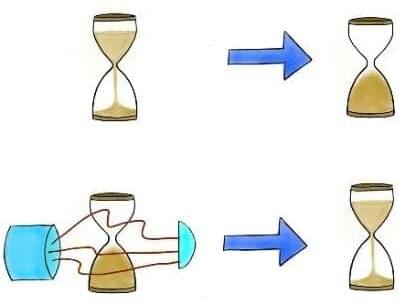Researchers at the Institute for Quantum Optics and Quantum Information (IQOQI) in Vienna recently devised a universal mechanism to invert the evolution of a qubit with a high probability of success. This protocol, outlined in Physical Review Letters, can propagate any target qubit back to the state it was in at a specific time in the past.
The introduction of this protocol builds on a previous paper published in 2020, where the same team presented a series of time translating protocols that could be applied in uncontrolled settings. While some of these protocols were promising, in most tested scenarios their probability of success was found to be too small. In their new study, the researchers thus set out to create an alternative protocol with a higher probability of success.
“Our newly developed protocol inverts the unitary evolution of a qubit,” David Trillo, one of the researchers who carried out the study together with Benjamin Dive and Miguel Navascués, told Phys.org. “A qubit (or quantum bit) is a two-level quantum system that serves as the quantum equivalent of bits used in quantum computers. Any quantum system has some natural evolution in time that needs to be controlled or at least accounted for when designing physical processes around them (e.g., when building a quantum computer). Our protocol takes a qubit and outputs the same system, but in the state that it would be in if it had evolved backwards in time.”
